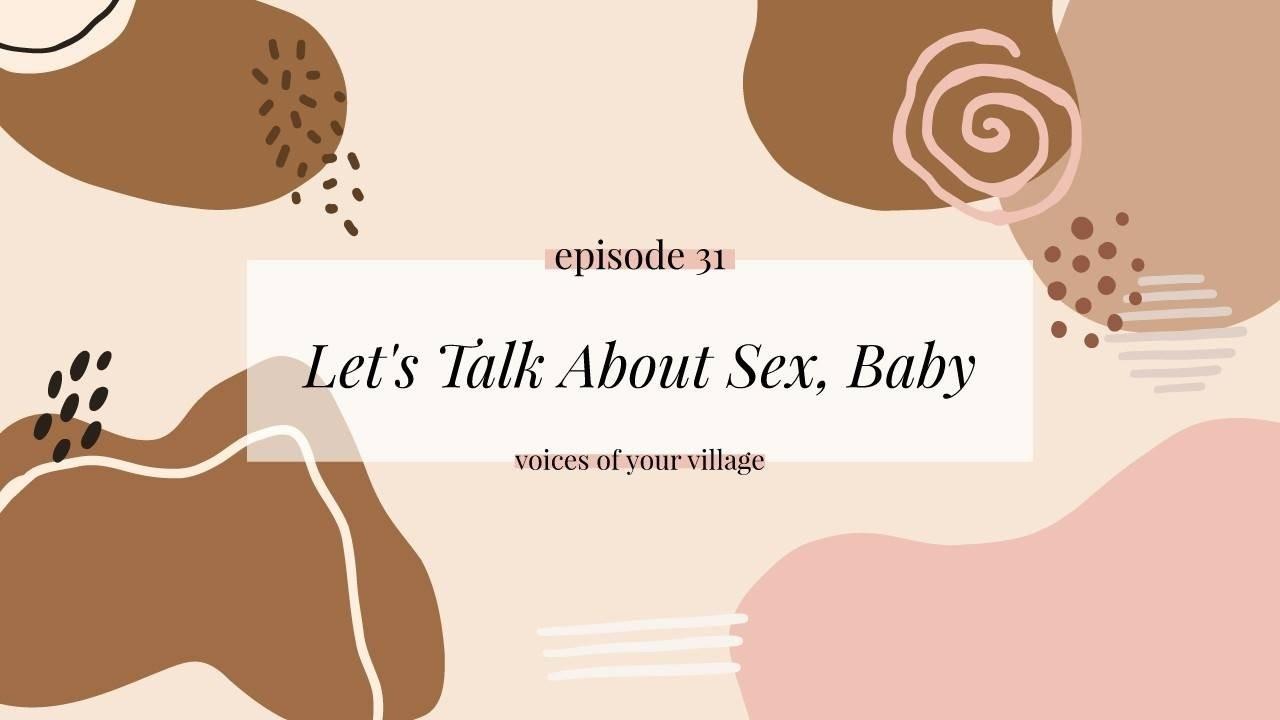Let's Talk About Sex, Baby, with expert, Amy Lang

On today’s podcast, I had the wonderful opportunity to talk with Amy Lang, the founder of Birds and Bees and Kids, building parents’ toolbox for talking to their children about their bodies, sexuality, and sex. Amy and I dove into how and when to have these conversations with kiddos depending on where they are developmentally.
We started with toddlerhood to see how those conversations can take place and how to respond to questions that your kiddos are throwing at you. After doing a lot of research, Amy found out the Netherlands is amazing when it comes to answering sex questions and all things baby-making. In the Netherlands, sex education begins as young as kindergarten. Developmentally, kids who are 4 or 5 years old are learning all the time, are non-judgmental, and are often open to information that is given to them.
“They come to party hopefully with no information about this stuff and so they don’t know there is anything yucky, bad, embarrassing or shameful about it, they don’t know there is anything grown-up about sex or baby-making.”
From an early age, we can start by talking about anatomy to lay the foundation. Also having a book on hand to go along with your conversation is key because it takes away the tension from you, as the caregiver.
Similar to the sex conversations, kiddos are also intrigued and interested in learning more about their bodies. When kids are in toddlerhood and begin asking these questions about their body parts, simplicity is key. Going into a lot of detail may be too much for them so giving them simple and to-the-point responses are the best way to go about answering these questions. As Amy shared, self-pleasuring exploration is totally common and healthy, it is a way for kids to discover and explore their bodies when they are in a private place. At times, having these conversations about self-pleasuring can be uncomfortable, so practicing these conversations beforehand is very important.
“I am a super fan of practicing because it helps you feel more comfortable and your kids at this age aren’t going to notice your scripted.”
To go along with this topic, we then dove into the topic of nudity and how to talk about this with your kiddos. As Amy explained, nudity is really a family choice. When addressing the nudity topic with your kiddo it is better to explain other people’s perspectives and how it makes some people feel uncomfortable rather than shaming your kiddos’ bodies. It’s MY body and I Can Play It Safe are two books that Amy really recommends to parents and kids as a way to address the topic of uncomfortable and unsafe touches and what children need to do in those cases and they can be safe in the world.
“Make sure your kids know who their safe adults are.”
We then talked about how to have the sex conversation when it goes from baby-making to pleasure. When having this conversation, it is important to link sex and pleasure by expressing that most of the time having sex feels good to their grown-up bodies and it is a way they can connect. It’s So Amazing is a wonderful book suggestion that Amy recommended, which talks about the relationship between sex and pleasure. Books are the way to go because they can be biologically accurate and allow space for caregivers to insert their own values.
“My personal belief is the most important thing you can do for your kids is to clarify your values about sexuality, love, and relationships, and if you don’t do that it makes it a lot harder to have those conversations because values give you roots.”
I shared with Amy some questions that listeners had, one being around the idea of how to teach your tiny human how to respect other children’s bodies. As Amy shared, role-playing and modeling consent, by asking first, are important ways for tiny humans to be aware of other people’s bodies as well as be aware of their own bodies. I find this so hard from the adult perspective when I really want to scoop them up and snuggle them, but they say no. I think it’s vital, though, that we respect their nos and model no means no by responding that way to them without shame or guilt for saying no. The other question was in regards to the role that technology has in sexuality and sex. As Amy shared, technology plays a negative role. As a caregiver, it is your responsibility to make sure that every device that your kiddos have access to has parental control installed so that you’re aware of what they’re seeing. Lay a foundation for your tiny humans to be comfortable having open conversation with you about their bodies, sexuality, and sex so they are apt to turn to you in times of need or discomfort.
As Amy ended our conversation, she shared with me how important it is for caregivers to take the time and really think about what their hopes are in terms of having these conversations now with their kiddos and later down the line when they are all grown up.
“When we really focus on our hopes that gives us the juice we need to get over ourselves and get on with these conversations.”
If you wish to connect with Amy you can visit her at her website and dive into all the resources she has provided in regard to this topic.
Books that were referenced throughout the podcast:
The books - all ages 2 - 5
My course - The Birds & Bees Made Easy — And if they use code NEWBEES it’s $100 off.
